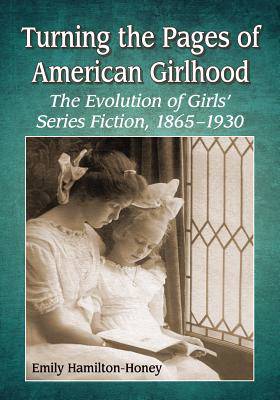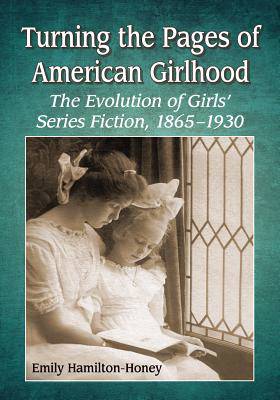
- Afhalen na 1 uur in een winkel met voorraad
- Gratis thuislevering in België vanaf € 30
- Ruim aanbod met 7 miljoen producten
- Afhalen na 1 uur in een winkel met voorraad
- Gratis thuislevering in België vanaf € 30
- Ruim aanbod met 7 miljoen producten
Turning the Pages of American Girlhood
The Evolution of Girls' Series Fiction, 1865-1930
Emily Hamilton-HoneyOmschrijving
Alternating chapters of historical background and literary analysis, this study argues that postbellum series books inspired young women by illustrating the ways in which girls could participate in social change, whether through church societies, benevolent organizations, educational institutions or political groups. By 1900, however, the socialization of series heroines had shifted to the consumer marketplace, where girls could develop personality and taste through their purchases.
Both models had benefits: Religious faith and political activism gave young women moral power within their communities; consuming gave them opportunities to indulge individual desires and often to socialize in public without adult oversight. This work adds to the existing scholarship on girls' culture not only by examining the beginnings of series fiction for girls and the models of womanhood it presented but also by tracing the shifting social ideologies of girlhood throughout the 19th and early 20th centuries.
Specificaties
Betrokkenen
- Auteur(s):
- Uitgeverij:
Inhoud
- Aantal bladzijden:
- 264
- Taal:
- Engels
Eigenschappen
- Productcode (EAN):
- 9780786463220
- Verschijningsdatum:
- 26/02/2013
- Uitvoering:
- Paperback
- Formaat:
- Trade paperback (VS)
- Afmetingen:
- 150 mm x 226 mm
- Gewicht:
- 362 g

Alleen bij Standaard Boekhandel
Beoordelingen
We publiceren alleen reviews die voldoen aan de voorwaarden voor reviews. Bekijk onze voorwaarden voor reviews.











